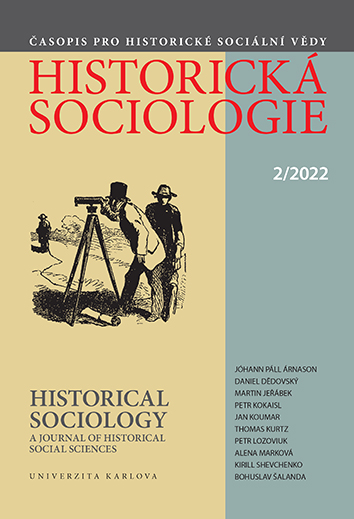The Continuity of the Traditional Livelihood of the Altai-Kizhi People in the Post-Soviet Period from the Perspective of Material Culture and Social Change
The Continuity of the Traditional Livelihood of the Altai-Kizhi People in the Post-Soviet Period from the Perspective of Material Culture and Social Change
Author(s): Daniel DědovskýSubject(s): History, Social history
Published by: Univerzita Karlova v Praze, Nakladatelství Karolinum
Keywords: livelihood; pastoralism; agriculture; social change; the Altai Republic
Summary/Abstract: The livelihood of the Altai-Kizhi people saw two paradigm shifts during the 1900s: forcible collectivization at the turn of the 1930s, and its impromptu deconstruction in the 1990s. This paper observes the changes to the livelihood of the Altai-Kizhi following the collapse of the USSR with a particular focus on the area of material culture and social change. It investigates the issue of continuity of traditional culture patterns in modern society and their importance. Particular attention is paid to the form and function of farming buildings in the context of climatic conditions in the South Siberian Mountains, the veneration of the horse hitching post, the aspect of agriculture, and the relationship of the Altaians to their livestock.
Journal: Historická sociologie
- Issue Year: 14/2022
- Issue No: 2
- Page Range: 49-62
- Page Count: 14
- Language: English

